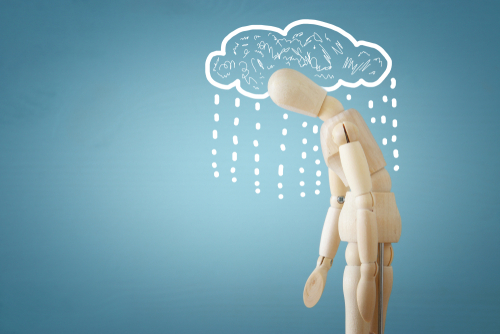Speaking of mental health, it is known that seafarers are often struggling with feelings of loneliness, depression, and anxiety while at sea. In fact, being a seafarer has always been demanding and stressful, given the long time away from home and lack of communication.
Considering the above, Filistos ASCOT conducted a wellbeing survey focused on crewmembers’ mental health. The 2020 results, in comparison to 2019, showed a major increase in all psychological issues, but among the largest differences between the two years appears to be anxiety.
Specifically, due to the coronavirus pandemic along with the crew change crisis, which leaves seafarers unable to return home for months, anxiety levels among crew were doubled during 2020. As vessels are unable to continue with their planned schedule, there is an added worry among seafarers not knowing when they may see their family again, while other seafarers may not be able to join vessels, leading to job insecurity.
“The seafarers can identify more stressors than one year before. In fact, the levels of stress have more than doubled in 2020 since 2019, which has a profound effect on seafarers’ wellbeing”, as noted in ASCOT’s wellbeing survey.
Workload, social interaction and shore leave have been identified as just some of the areas where the pandemic is being felt most keenly by seafarers, according to The Mission to Seafarers’ Quarterly Happiness Index.
The COVID-19 pandemic led to crew change restrictions and challenges for the seafarers, resulting to immense stress.
…Christopher L. Hall – Managing Director (Hong Kong), SCB Management Consulting Services, Ltd. and Business Development Director (Asia), noted.
What is more, recent data from Mental Health Support Solutions revealed an increase in ships’ Master request for counseling support, while anxiety onboard ships remains a growing issue. “We expect to see an increase in anxiety regarding COVID-related travel complications and limited crew changes”, Charles Watkins, Managing Director and Clinical Psychologist at MHSS, said.
In addition, a research undertaken by medical experts in Italy, Spain and Denmark revealed that 60% of seafarers believe their health has not been properly protected at work during pandemic and more than half feel unsafe doing their job.
The above show the need for all organizations to alleviate the risks posed by increased levels of work-related stress caused by this crisis. Employers should use a combination of person-focused and organization-focused prevention to tackle the problems.
The effects of COVID-19 on seafarers is wide-ranging. Some are taking it in their stride and others are feeling it much more. But one thing is sure, we are all human. As such, there are some mental health issues affecting how we work and how we approach our safety in general.
…as AMSA marked.
Overall, operators and masters are responsible to ensure their crew have the necessary information and strategies to help alleviate the effects of stress that can lead to mental health issues.






























































